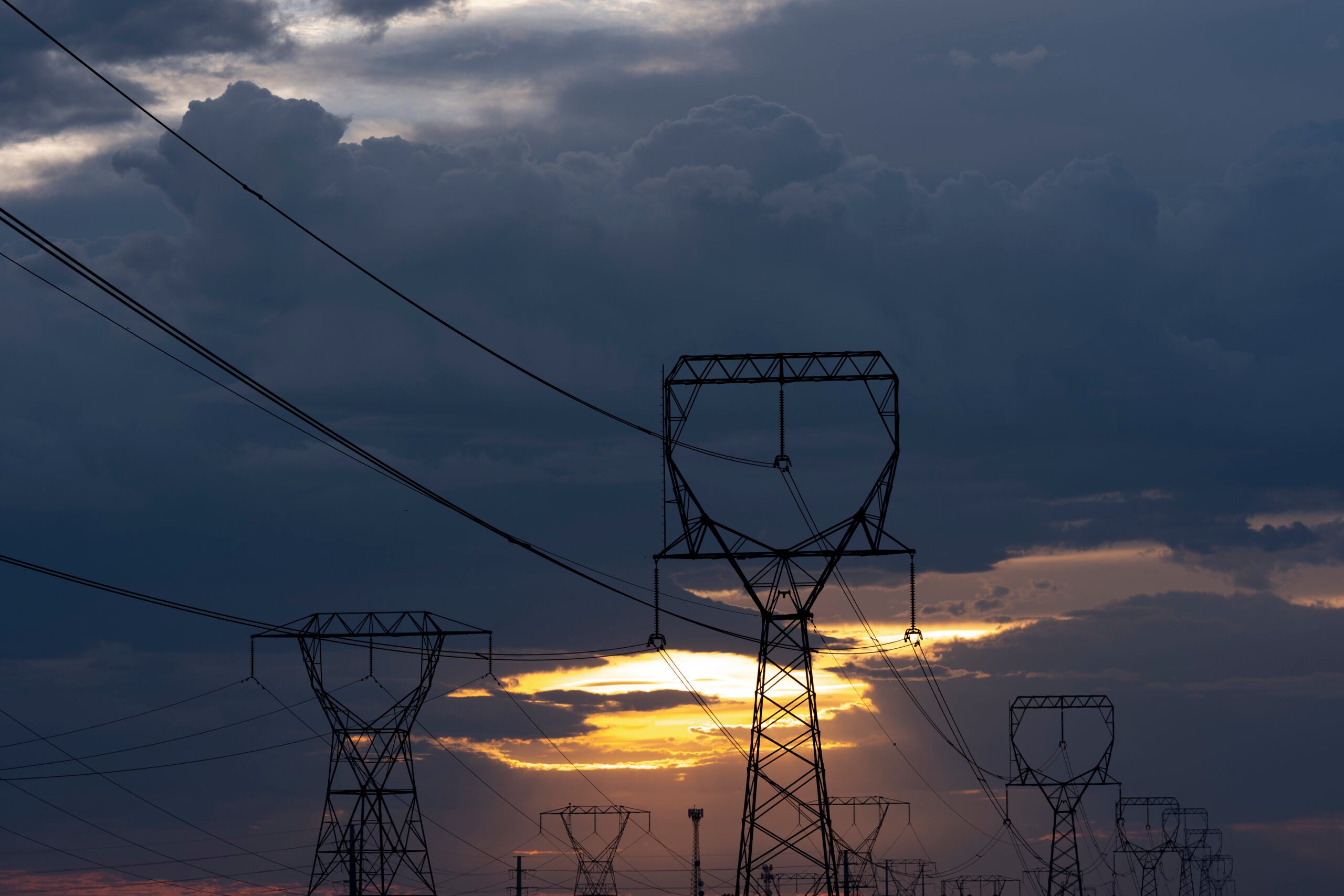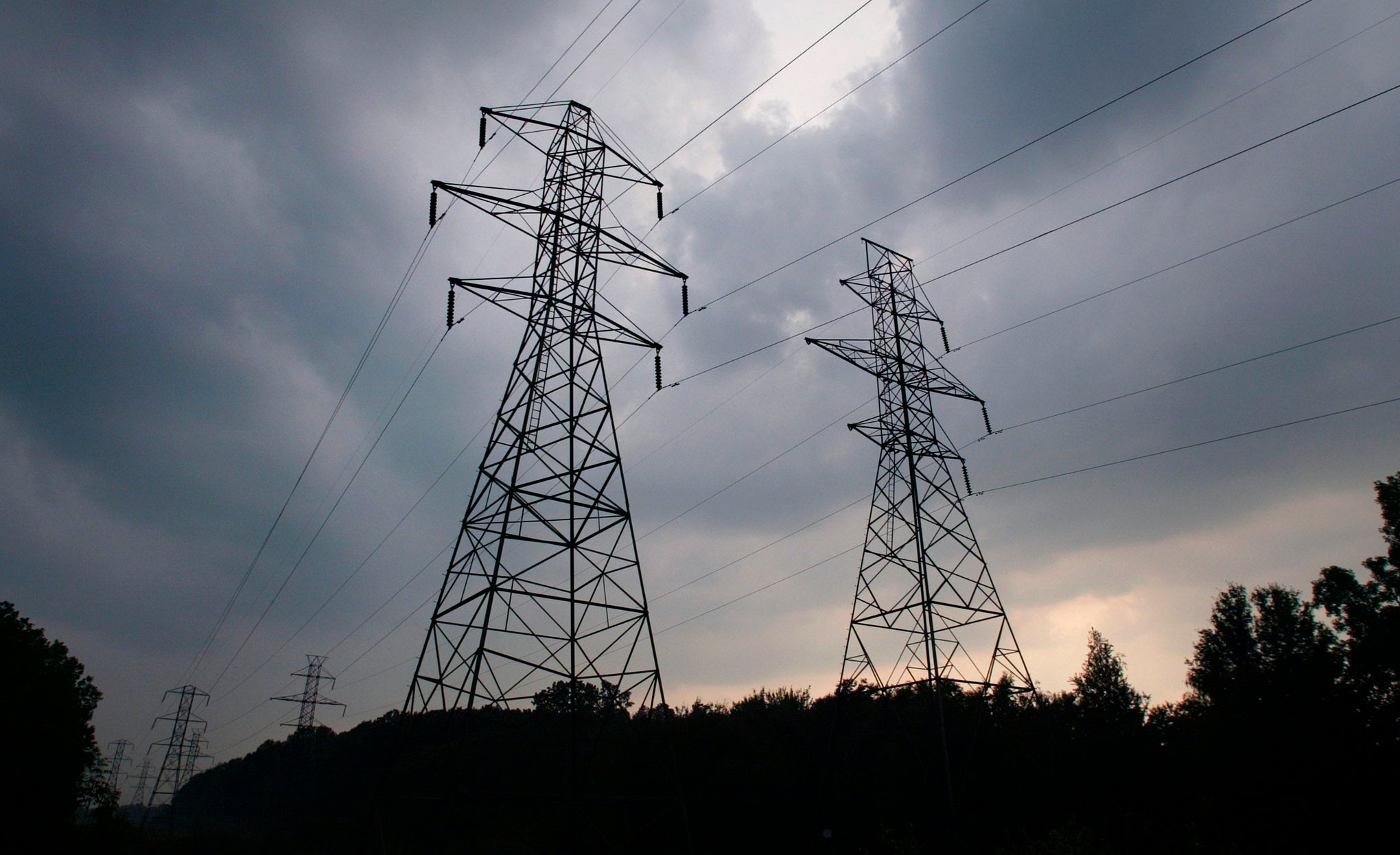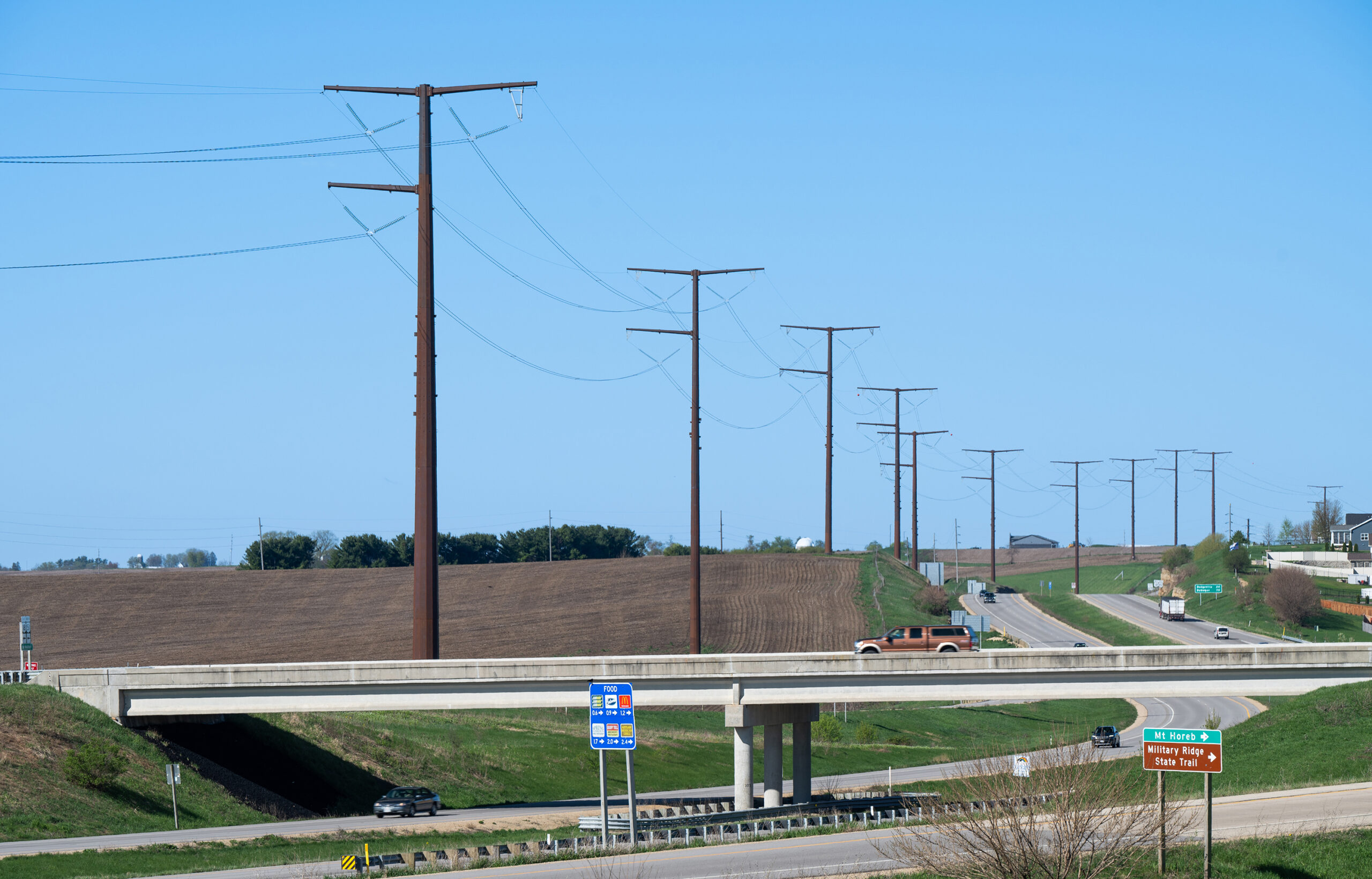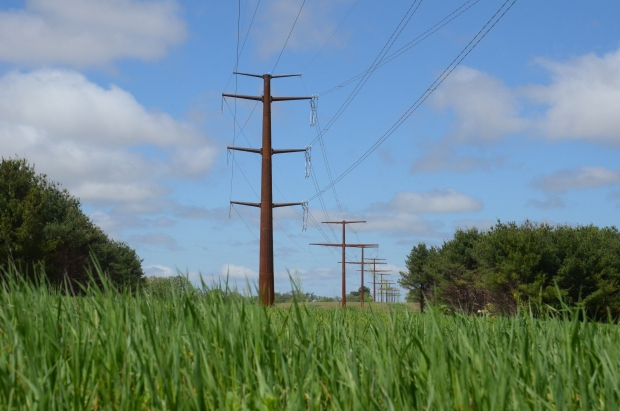The owners of a disputed transmission line that’s being built across southern Wisconsin now expect the project to cost more than half a billion dollars due to rising material costs and ongoing legal challenges.
American Transmission Co., ITC Midwest and Dairyland Power Cooperative are building the 345-kilovolt Cardinal-Hickory Creek transmission line that would run more than 100 miles from Dane County to Dubuque County in Iowa.
The project’s co-owners told the Wisconsin Public Service Commission in a filing on Friday that they expect the cost to build the $492 million power line to grow by more than $49 million or beyond 10 percent of the initial price tag.
News with a little more humanity
WPR’s “Wisconsin Today” newsletter keeps you connected to the state you love without feeling overwhelmed. No paywall. No agenda. No corporate filter.
“Rising costs are presently a reality in all industries, and the Cardinal-Hickory Creek project is no exception,” Alissa Braatz, an ATC spokesperson for the project’s co-owners, said in a statement.
In the filing, the utilities highlighted “considerable increases” in the cost of construction materials, including steel, conductors and insulators for the project. The price of steel for ATC has spiked 93 percent while the cost for conductors has risen 68 percent since initial cost projections in 2018. ITC Midwest reported the price of steel surged 110 percent over the last four years.
The project’s co-owners also said ongoing expenses from multiple legal challenges have driven up costs to build the line, saying the project’s total cost remains unknown until their appeal is resolved.
In March, the utilities appealed a federal judge’s decision that blocked the project’s crossing through the Upper Mississippi River National Wildlife Refuge. U.S. District Judge William Conley sided with conservation groups that challenged approvals issued by federal agencies for the project, including the Driftless Area Land Conservancy and Wisconsin Wildlife Federation.
Conley agreed the Rural Utilities Service violated federal environmental law because its analysis of alternatives to the project was too narrow in scope. The environmental impact statement for the project and a record of decision was sent back for further review.
Conley also found building the line there isn’t compatible with the purpose of the refuge, which is a haven for fish and wildlife. Millions of birds use the refuge as their breeding grounds, and it’s the only stopping point left for many migratory birds.
Utilities are disputing the judge’s decision, and they asked a federal appeals court to put a hold on the judge’s ruling until an appeals panel decides the case. The 7th Circuit Court of Appeal denied that request earlier this month.
Howard Learner, lead attorney for conservation groups, said transmission companies are “playing a game of chicken” by continuing to build the power line without an approved path through the refuge. He highlighted the project’s co-owners have already spent nearly $277 million to build the line, saying increased costs will be paid by ratepayers.
“They don’t even know how much it’s eventually going to cost,” said Learner, executive director of the Environmental Law and Policy Center. “What we have here is a runaway train wreck in terms of costs for a transmission line that’s not economically justified, isn’t good for the environment, and it’s time for the courts and for the Public Service Commission to say enough is enough. Put a pause on the construction.”
Conservation groups filed a motion in federal appeals court last week to temporarily halt construction of the line while the court weighs the appeal filed by utilities. Learner said he hopes the court will rule on their motion within the next several weeks. Wisconsin’s ratepayer advocacy group, the Citizens Utility Board, has also called on the Public Service Commission to stop work on the project.
“If construction is halted just in one small area, construction can continue across the rest of the project,” said Tom Content, executive director of the Citizens Utility Board. “That doesn’t make sense given there is no ability to cross the river. We need the courts to resolve that issue before more money is spent.”
Conservation groups want to see a full review of alternatives to the line that might include other crossings, modernizing existing transmission lines, energy conservation and renewable energy projects that include battery storage.
They say utilities are overstating the benefits of the transmission line, which conservation groups contend will generate more power from fossil fuel sources. Utilities have argued more than 100 renewable generation projects rely on the line’s construction to tie into the regional power grid, which would cut carbon emissions by up to 1.2 million tons each year.
The project’s co-owners also argue the line will still provide net economic benefits to ratepayers in Wisconsin, Iowa, and the surrounding region.
“Cost prudency is critical for our energy consumers, investors and owners,” said Braatz in a statement. “We also have a responsibility to our regulators, renewable generation developers and energy consumers to construct this project by December 2023, and we commit to managing these escalating costs to the greatest extent possible.”
The project was initially anticipated to create between $23 million and $350 million in economic benefits over its 40-year lifespan. Wisconsin ratepayers were expected to pay around $67 million or about 15 percent of the cost to build the line. The remaining cost would be spread out over the region managed by the Midcontinent Independent System Operator, which oversees the power grid in 15 states.
Editor’s note: American Transmission Co. is an underwriter of Wisconsin Public Radio.
Wisconsin Public Radio, © Copyright 2025, Board of Regents of the University of Wisconsin System and Wisconsin Educational Communications Board.







